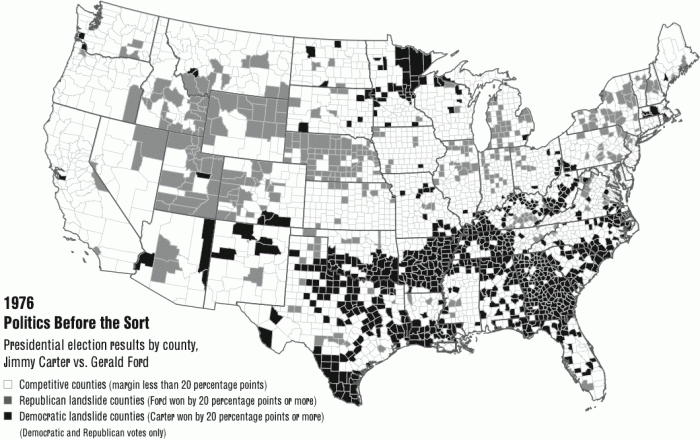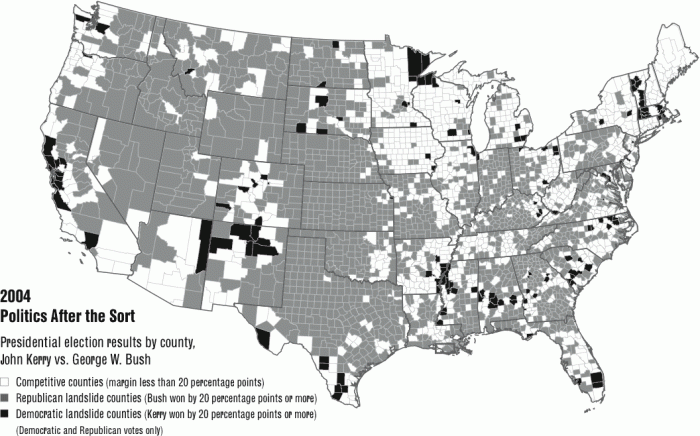A sermon preached at Southminster Presbyterian Church in Boise, Idaho
March 24, 2019
Matthew 22:1-14
Parables do not have only one interpretation. So hear this invitation to reach your own interpretation of this story that is at odds with mine.
Do I wish Jesus were clearer in his teachings? Most days, my answer to that question is yes. Please Jesus, just tell me what the Kingdom of Heaven is like, in clear and simple terms that I can understand.
But then I think about the people who always have simple answers that ignore context, that lack nuance, that are so black and white as to be at odds with our lived experience of the complexity of life, and I think, “nevermind Jesus, you just keep at it with these weird stories that baffle us. We’ll keep at it, struggling with the mystery.”
And so we get Matthew’s parable of the wedding banquet, which is a little harsher than Luke’s version, if you want to compare the two. (Luke’s is found in chapter 14). Luke does not include weeping and gnashing of teeth, which is too bad, because it’s so fun to say.
Somehow the Kingdom of Heaven is illustrated by a community that doesn’t get along all that well.
The King’s son is getting married and people have been invited. We recognize that much from our own lives. Presumably, these invited people have already mailed in their RSVP cards, stating their preference for chicken, salmon, or gluten free vegan meals.
And then none of the guests will come to the wedding banquet when the party is ready.
NONE.
Think about how important it is for community to have people show up. And if people are not wanting to come for a feast, what can we guess about the chances they would show up for a funeral?
What does it suggest about this king that he has no community to support his celebrations?
What does it say about the invited guests that they won’t even go to a party?
The community around this wedding banquet is conflicted from the start.
But wait! There’s more.
The King sends the slaves back.
Perhaps you misunderstood, friends. Party is ready NOW. And the menu is spectacular. Lots of roast beast. Come. Now. Before it gets cold.
This time there are excuses. Some have jobs. Others have farms. And those may seem like legit excuses to miss a party, but here’s your sabbath reminder in the middle of this weird parable—work is not life. Go to the party.
Other invited guests don’t use the “i’m a workaholic” excuse of the others. They just seize, mistreat, and kill the king’s slaves.
That escalated quickly, didn’t it?

The kingdom of heaven’s story is told in the midst of people who do violence for fun. It takes place with people who mis-prioritize their jobs over their community. In other words, the kingdom of heaven’s story is told about a world that looks a lot like ours.
And while this parable contains commentary on the people in Jesus’ day who didn’t receive him, who didn’t recognize God’s invitation in the person of Jesus, I can’t do much about them. It is not my job to fix the people who reject God’s invitation.
It is my job to attend to the moments when I am the person who rejects the invitation, who gets too busy to make time to respond to the needs of community, who doesn’t recognize when it is God who has invited me to the feast.
I was thinking that the murdering of messengers of the king was a little removed from our experience, a little hyperbolic, even, but then I read a story about hyper partisanship in our country.
We’ve become so divided as a nation that “nearly one out of five Republicans and Democrats agree with the statement that their political adversaries “lack the traits to be considered fully human — they behave like animals.”
“Just over 42 percent of the people in each party view the opposition as “downright evil.”
“In real numbers, this suggests that 48.8 million voters out of the 136.7 million who cast ballots in 2016 believe that members of opposition party are in league with the devil”.
Friends. We have to do something about this. If these numbers continue, or heaven forbid, get worse, I worry we won’t have a peaceful transfer of power at the next election, no matter who wins. And we can’t weave a strong fabric of our nation when we keep trying to remove the threads of our fellow citizens who don’t share our views.
If, just for a moment, we put President Trump, or former President Obama, in the role of the king in this parable, we can fully imagine that some of the people invited to the party would mistreat and kill their slaves when they came to invite us to the banquet. This parable isn’t so hyperbolic after all.
The kingdom of heaven is like a nation that believes their political opponents are not fully human.
The King furiously responds to the murder of his slaves, by destroying the murderers and burning their city. This is an eye for an eye parable, not a “forgive them 77 times” parable.
And then new slaves are sent to gather in anyone they find, presumably even some people who fled the flames when their city was burned down. Anyone they find—the good and the bad—and bring them to the party.
The Kingdom of heaven is like a banquet filled with guests who are the good, bad, and ugly.
And before you start bemoaning the lowering of standards of just who God lets into the kingdom of heaven, let me remind us that we made the cut too, so perhaps it’s a good thing.
And it is worth remembering that when both ‘good and bad’ are swept up in the invitation to come to the banquet, that includes people, presumably, who don’t respect the full humanity of other people on the guest list.
So you have gay rights advocates sitting next to people who refuse to Add the Words. You have partisan Democrats sitting next to partisan Republicans. At this banquet are climate change deniers and environmental activists. Across the table are people who won’t vaccinate their children sitting next to doctors and public health advocates.
That’s what you should picture when Matthew says “the good and the bad” were gathered for the banquet. I recognize that how we define who is “good” and who is “bad” is up for debate. And that’s the point. However we see it, we’re still at the banquet with people who see it differently.
There are some ways we divide here on earth that matter, that help keep people safe. If someone were a white supremacist, I would not tell a person of color to sit next to them at a table. God might do that at the great banquet, but I won’t. It is appropriate here to not validate all viewpoints equally. If a viewpoint seeks the destruction of other people, it is right for society to speak against such behavior.
Another change in Matthew’s parable from Luke’s telling of the parable, is the guy wearing the wrong garment.
‘Friend, how did you get in here without a wedding robe?’
I tend to get hung up on the garment business in this parable. I think, “okay, Jesus. You’re being a little extreme. This guy wasn’t planning on being at the party at all, why are you judging him for not wearing his tuxedo on the off chance someone was going to compel him to attend a banquet?”
I don’t know if you have seen the movie Crazy, Rich Asians, which came out last year. It chronicles the lives of the rich and famous in Singapore. One of the characters is invited to join a very fancy dinner while wearing casual clothes. She goes to the trunk of her car and searches through garment bags, where one batch is marked “Cocktail Dress”. She says she just needs to change and her friend Rachel says, in surprise, ‘You have a cocktail dress in your trunk?’ To which the woman replies, ‘I’m not an animal Rachel.’”

‘Friend, how did you get in here without a wedding robe?’, the man is asked.
While not everyone carries cocktail party attire in their trunks, the rest of the guests managed to put on the appropriate garments for this party. The comment isn’t “why isn’t your wedding robe from a better fashion designer? Why isn’t it a nicer wedding robe?” This man seemingly put no effort into responding to the invitation appropriately. The other guests managed to find something to wear. Why didn’t he?
If one of you invited me to watch cows give birth on a farm, I wouldn’t show up in the clothes I’m wearing to lead worship. If I were invited to a fundraising formal gala, I wouldn’t wear my BSU sweatshirt and jeans. I would dress appropriately for the occasion.
I don’t think the kingdom of heaven is concerned with what our actual clothes are. The wedding garments are more likely a stand in for the condition of our hearts. When we have received an invitation to the Kingdom of Heaven, do we show up to the party with so little respect for the host that we refuse to accept the garments of joy and love and hope, and instead wear the grungy old garments of judgment and righteousness without mercy?
And if we show up to the feast, while maintaining our human divisions and rancor, I promise we’re not dressed appropriately. We can’t come to a party and want the person sitting next to us to die because of who they voted for or what they believe. There will be weeping and gnashing of teeth for people who refuse to see other people as fellow banquet guests.
God has invited us to the feast. Whether or not we are particularly worthy or deserving, whether or not we knew we were on the guest list or not—we find ourselves guests of God’s great banquet, where grace, mercy, acceptance, love, and life everlasting are on the menu.
Friends, this is the Good News of the gospel. It is for you and it is for all.
How will we respond to it?
Will it change our lives in visible ways so people will know we’ve put on garments of celebration and gratitude?
Or will we just stay in our garments of “life as it used to be”, before we knew about God’s love in Jesus, continuing to preference our divisions?
There’s a book called the Big Sort: Why the Clustering of Likeminded America is Tearing Us Apart by Bill Bishop and Robert Cushing, that speaks about the changes to our nation in the past 40 years. Look at this map of how people voted in the 1976 election.

All of the sections in white were competitive districts in the election. In 1976, only 26 percent of all counties were“landslide counties,” where presidential candidates won by 20 percentage points or more.
Look at the map in 2004.

Look at how we had sorted ourselves to be in areas with like minded people. Almost no competitive areas left.
By the 2016 election, 60 percent of counties were won in landslides of over 20 percentage points by one candidate or the other.
What does this have to do with us, you ask? Fair question. It isn’t just in our voting that we separate and sort into groups of like minded people. It happens in neighborhoods, social clubs, churches. For us to gather, as people who don’t all vote the same, is becoming an ever rarer event. And it becomes ever more challenging to do so as our culture continues to sort ourselves by affinity.
The Kingdom of Heaven is like a wedding banquet, where God refused to validate our dividing lines and forced us to come together and celebrate our inclusion at God’s banquet table.
I trust, and pray, that when I arrive at God’s banquet, I will come to recognize the ways I have not fully appreciated the humanity of some of my fellow banquet goers. I hope I will have the humility to take off the garments of exclusion and arrogance, and put on an appropriate garment for God’s banquet.
While society is busy with the big sort, separating us and organizing us into narrow affiliations, God’s banquet is the big un-sort. There are ways that we, as a congregation, fit into the sorting, but in many ways, we are already living into the un-sorting.
How can we be more intentional about that?
Are we the church that welcomes all to the banquet?
And during the week, in our volunteering and our free time, can we put ourselves in places where we’ll be aware of other viewpoints and understandings?
Who could you invite to lunch who you know you don’t agree with on much?
Other than your usual source, where could you turn for a different perspective on the news?
Is there a different faith tradition you could visit the next time we have a sabbath weekend?
Are there people you could invite to join us here, who could expand the range of voices we have, without making the congregation less safe for people?
There have been times in church history when choosing who goes to the outer darkness, with the weeping and gnashing of teeth, was what the church focused on. I don’t think that has ever been our job.
I think we are called, again and again, to come to the banquet. And to figure out how to put on garments we might not be comfortable in, but which might make other guests at the banquet a little more welcome.
The image I’ve had in mind this week is from New Zealand. In the aftermath of the attack by white supremacists at two mosques, women in New Zealand have worn headscarves, as many muslim women do, to show their solidarity in the aftermath of the atrocity.

What can we ‘wear’ in our hearts, and maybe on our bodies, to make other people feel they too have a place at God’s great banquet?

Thanks, Marci, especially for the challenging questions.
LikeLike
Thanks, Barbara. They are questions that challenge me too!
LikeLike